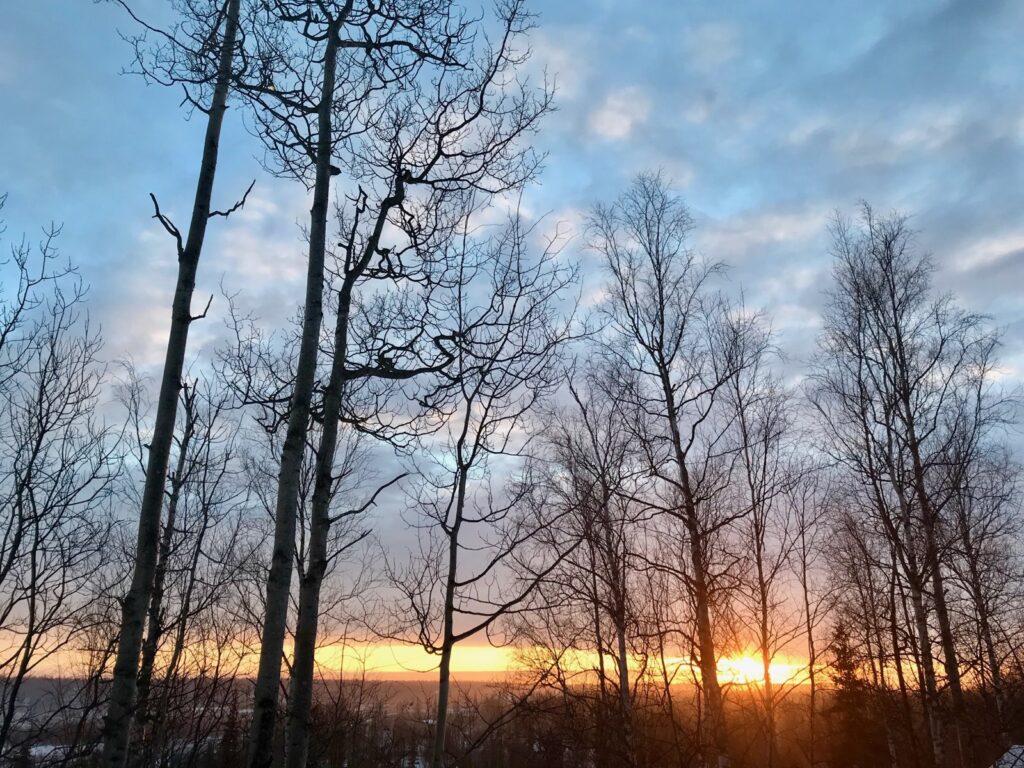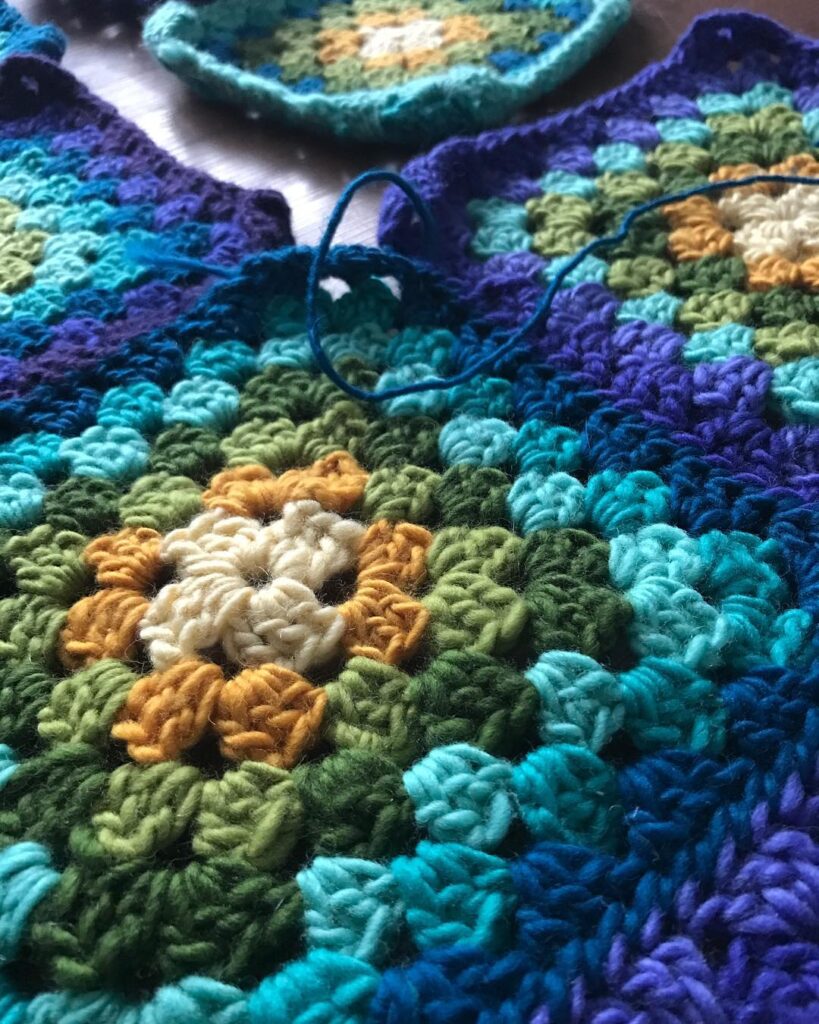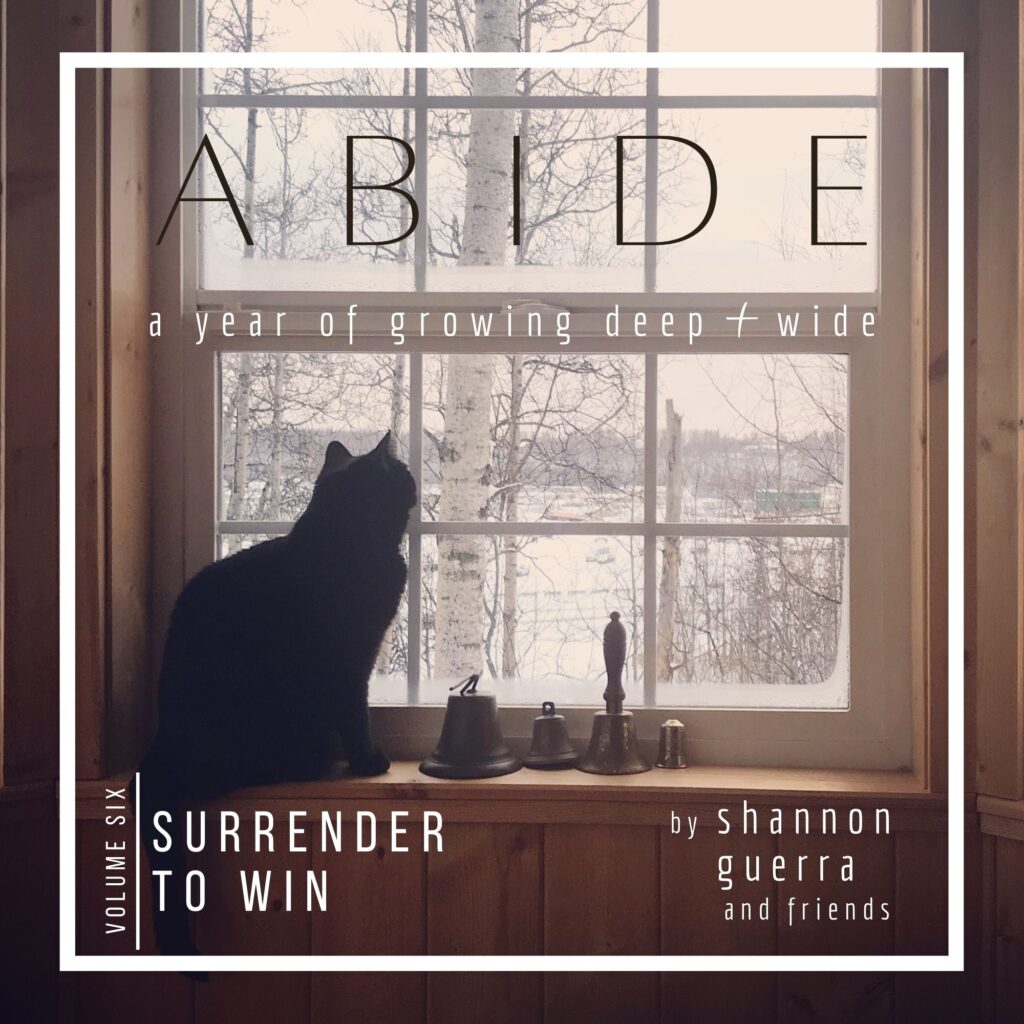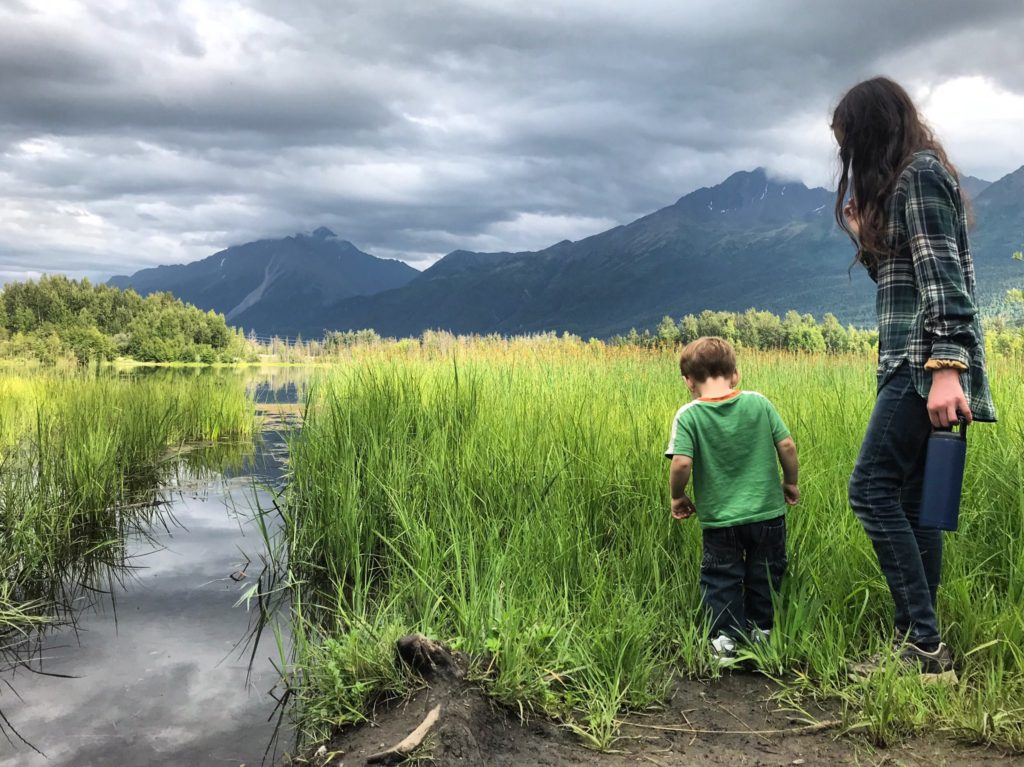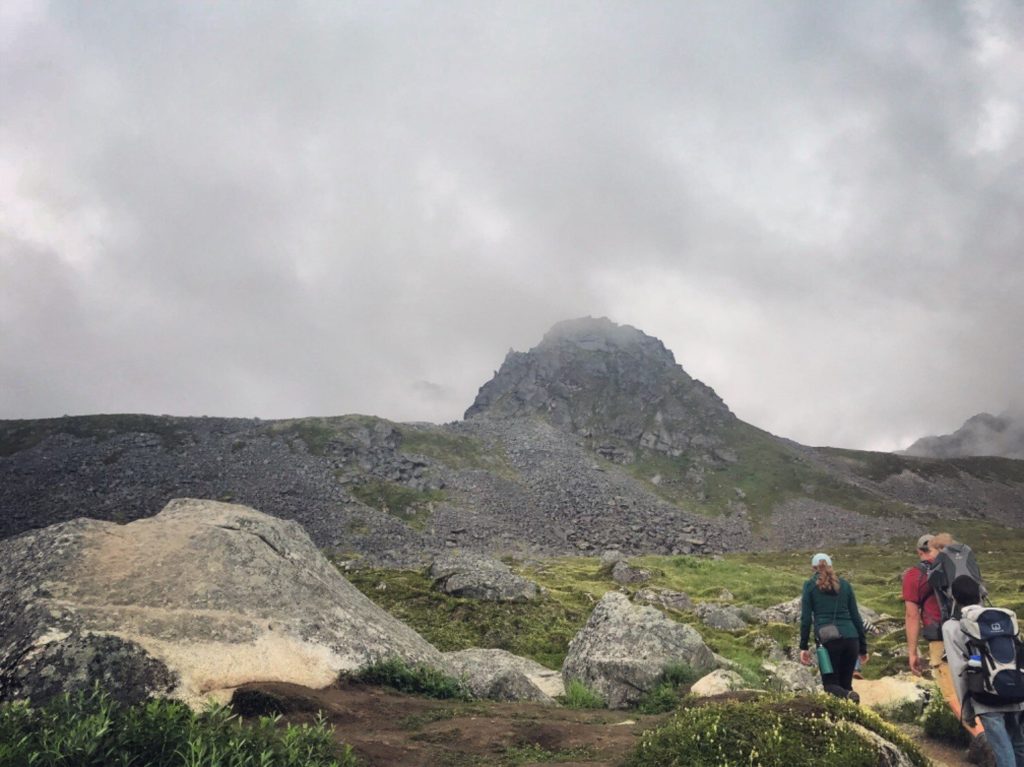We’ve had several windstorms already this winter but lucked out during the last one, when most of the Valley lost power. We, of course, had our own drama at that time so it was a huge blessing we didn’t also have to deal with no heat, hot water, or electricity. But we lost power earlier in the year enough times to decide that a woodstove was a necessity sooner rather than later.

When the power went out during the first windstorm last fall, it was late afternoon and we were quickly losing daylight. I was reading, moving closer and closer to the window so the light would hit the page at the best angle.
This was before the first real snowfall, so the ground didn’t reflect any light. Outside, an old leaf flew up and caught on the branch of a tree, adopted temporarily before letting go and flitting like a bird to another tree where it held again for a minute before a gust blew it away.
Inside, the light kept fading, and even though I was trying to read Hannah Fowler fast enough to finish the chapter before darkness made it impossible, it was a losing battle. It was just like when you stay up too late, trying to finish a chapter before exhaustion hits. But there wasn’t enough light, so I gave up and lit candles and started putting together a cold dinner.
My goal was to read 52 books last year. I read 54. It’s my record; the only other time I came that close was 21 years ago which was the first year I was a mother, when I was nursing a baby with reflux 32 hours a day. This year my goal is higher but so far it’s off to a slower start – I’ve only marked off one book so far – though I read several at a time and could feasibly knock out six before February. We’ll see.
Here are my favorites from last year: The ones I loved, the ones I’ll read again, and the ones that I think could change the world if more people read them. Not every book fits in all those categories (though the ones by C.S. Lewis do, of course). And in full disclosure, the first two books on this list are ones I’m still reading. But I love them so much that you get them on this list now so you can grab them sooner rather than later if you want to.
The Vision of the Anointed by Thomas Sowell:
I quoted this one twice in my last post with this warning: “Thomas Sowell is crazy smart, and I admit it helps to have a drink handy while reading him (I mean coffee, not wine, or don’t bother).” So you’ve been warned. But this is one that I think could change the world if more people read it. He wrote it about 20 years ago, but you’d never know that if the copyright page didn’t tell you; it seems like he’s writing about the days we’re living through now. Here:
Human beings have been making mistakes and committing sins as long as there have been human beings. The great catastrophes of history have usually involved much more than that. Typically, there has been an additional and crucial ingredient — some method by which feedback from reality has been prevented, so that a dangerous course of action could be blindly continued to a fatal conclusion.
— Thomas Sowell, The Vision of the Anointed
An Everlasting Meal by Tamar Adler:
I’ve read a lot of cooking and foodie books over the last few years and this is my new favorite. I will come back to it again and again (and I already do, as I’m cooking) – she is not only a beautiful, gifted writer, but she cooks the way I do (except she’s a chef, so, you know, tiny difference) and reading this book validates my quirks in the kitchen. I want to cook every time I read it. So if you don’t like to cook, give it to your spouse and see if it does the same thing. You’re welcome.
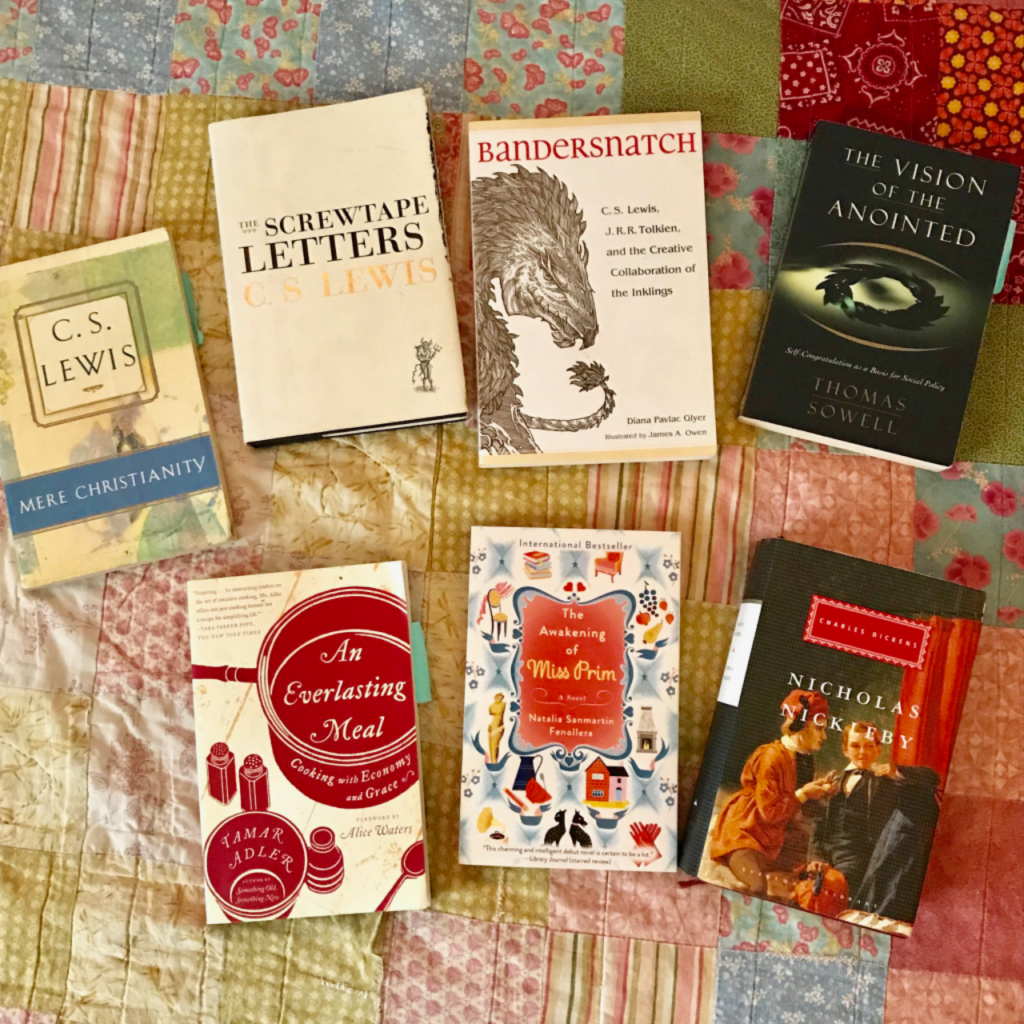
Howards End by E.M. Forster:
I don’t know if I loved this book because I loved the new movie version first or if I would’ve loved the book more (or less) had I read it first before watching it. It’s one of those that has major lessons in it about human nature for those who read slowly enough to learn them. But if you’re not sure about reading it, try the most recent version of the movie because it is also wonderful, and see if that convinces you. Because, forget Howards End, I want to live in the Schlegel’s London flat full of stuffed, turquoise bookshelves.
Pity, if one may generalize, is at the bottom of woman. When men like us, it is for our better qualities, and however tender their liking, we dare not be unworthy of it, or they will quietly let us go. But unworthiness stimulates woman. It brings out her deeper nature, for good or evil.
– E. M. Forster, Howards End
Nicholas Nickleby by Charles Dickens
This was my second go-round with Nicholas Nickleby and I forced my family to come with me. Most of them Some of them liked it. To be fair, it took us over two years to get through the whole thing because it’s over 800 pages and we would read aloud only a few times a month over the squalls of a baby who became a toddler while we went through it. Using Librivox during long drives to Palmer helped, and if you like audio, there’s a terrific version here.
Here’s why I love Nicholas Nickleby, and it’s not just because it’s by Dickens (though he’s my favorite and that’s a pretty good reason): I love Nicholas because he does what you want him to. He stands up for his sister, he confronts cruelty, he is patient and tender with the broken, and best of all, when someone needs horsewhipped, he’s not afraid to do it. *glares disgustedly at David Copperfield*
The Awakening of Miss Prim by Natalia Sanmartin Fenollera
I do not like modern fiction, almost ever, and this was an exception. It is a cozy, contemplative, bookish story that makes you want to move to the town it takes place in. But let me do you a favor and tell you right now that the Man in the Wingchair never gets a real name, which surprised and annoyed me – I had been waiting to discover his name for the entire book. So I’m telling you now to prevent you from expecting it and being disappointed, thereby freeing you to love this otherwise delightful, beautiful, slightly nerdy book.
Hannah Fowler by Janice Holt Giles
This was an ugly old hardcover sitting on my shelf that I must’ve picked up at a thrift store years ago. I happened to pull it off the shelf one day and out of curiosity read the first sentence, and then the next, and then the next…and this is a good way to find the next book you want to read. If you’re not bored in those first sentences, it’s worth a go.
I learned something new in every chapter about pioneering life, living outdoors, and homesteading. Hannah is a strong, thoughtful character, and as I read I wondered if she was strong or gutsy enough to do the things I was hoping she would…and she did.
Wind in the Willows by Kenneth Grahame
I have said so much about Wind in the Willows here already. It’s in this post, and this post, and this book, and all I have left to tell you is that it gets better and better the more times you read it, so please get going on it and you won’t be sorry. This was probably my fourth or fifth time through. If you can read it out loud to your kids and give Toad a ridiculous voice, all the better.
A Brutal Justice by Jess Corban
Quick backstory: I found this book through an online readers group when someone mentioned a hate-fest of people leaving 1-star reviews for its Christian author because one reviewer said her books were full of homophobic content. So I bought the books (it’s a series of two) to see for myself, and lo and behold…the haters were wrong, as they often are. Here’s my review of the first one, which will also tell you a little about the second one:
This book both was and wasn’t what I expected, but it was nothing like what all the angry, misinformed 1-star reviews tout it as (most of whom admit they never even read the book, which is obvious to those of us who have…and ironically meshes well with the point of the story).
That point of the story is that women, acting in fear and anger and hatred, can be overbearing and cruel. Attempting to fix one huge problem by going in the extreme opposite direction is foolish and leads to serious consequences. Those consequences need to be faced and acknowledged, not ignored out of fear, insecurity, or narcissism.
I don’t usually like young adult books or dystopian novels, and the writing in this book is definitely not my style. (The writing in the second book improves by several notches, in my opinion.) But the storyline is fascinating, and the way both men and women are honored for their distinctness is something that I’ve thought about for days, and will continue to do so.
So, back to my review of the second book in the series, which is the one I loved: Remember what I said about not liking modern fiction? This was another exception that has me rethinking my prejudice. The concepts, characters, and setting were fascinating, and the turns of the story were super satisfying. The first book sets the stage for the story, but this is the one that I didn’t want to end.
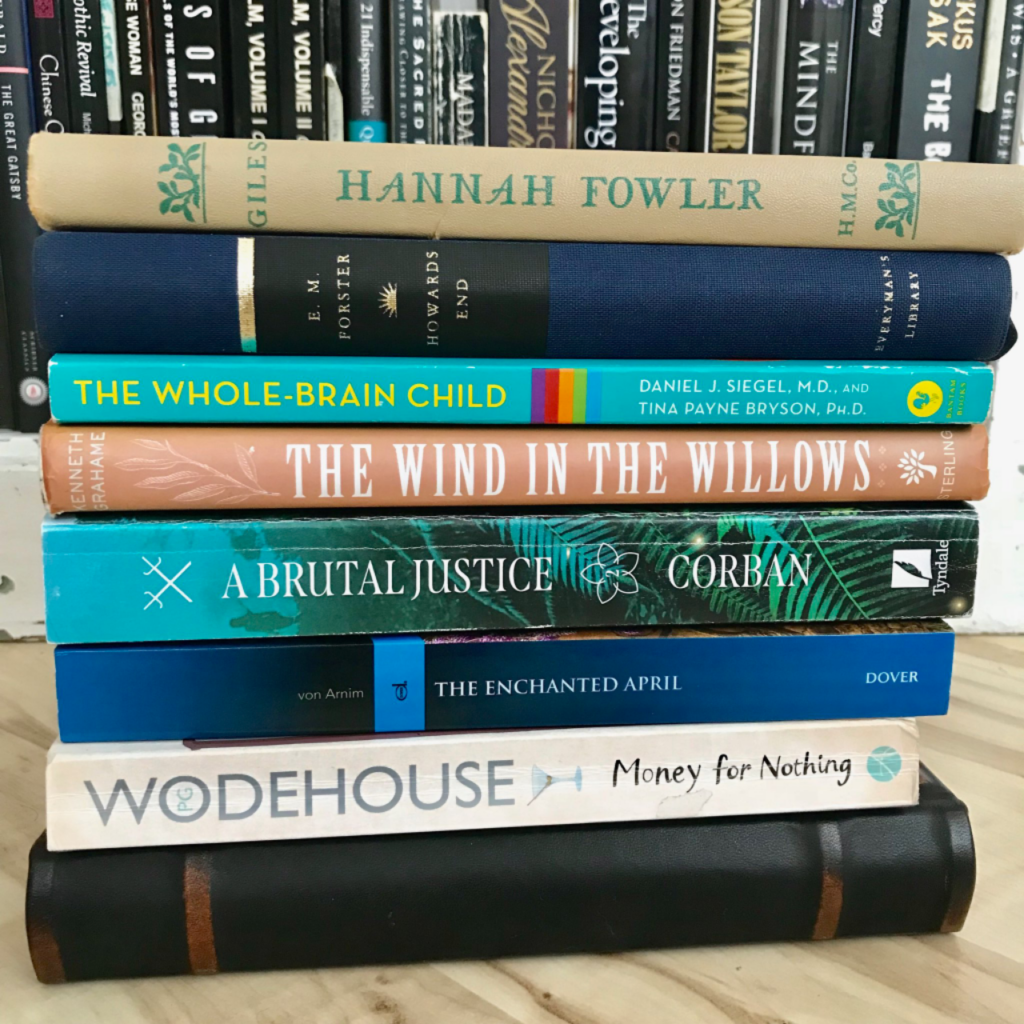
Mere Christianity by C.S. Lewis
C.S. Lewis gets a lot of credit for Oh My Soul because this book shaped much of it (or, it shaped much of me as I was writing it) and I come back to Mere Christianity every five years or so because it is so rich, I want the truths to sink into me and stay there. My high schoolers (three so far) each read it twice during school – once as freshmen or sophomores, and again as seniors.
“A silly idea is current that good people do not know what temptation means. This is an obvious lie. Only those who try to resist temptation know how strong it is… A man who gives in to temptation after five minutes simply does not know what it would have been like an hour later. That is why bad people, in one sense, know very little about badness. They have lived a sheltered life by always giving in.”
– C.S. Lewis, Mere Christianity
The Whole-Brain Child by Daniel Siegel and Tina Payne Bryson
I don’t read many parenting books anymore. It’s definitely not because I feel like I have this parenting gig nailed already (I am still trying to remember to get my little kids in the bath at least twice a week) but because parenting books can be so discouraging. Overwhelming. Condescending and condemning, in a nicey, psychobabble-laced-with-Christianese kind of way. And I’m good enough at fighting all those feelings without paying $17.95 and reading 220 pages to pound it in, thankyouverymuch.
This book was not like that, though. This book was empowering and encouraging and equipping, and so full of ideas and information that it is worth keeping on a low shelf where you can reach it often and refer back to. It also has a terrific section in each chapter that you can read with your kid to empower, encourage, and equip them as they learn to understand how their brain works, too.
The Enchanted April by Elizabeth von Arnim
Another book that you might know better by the movie. I watched the movie years ago and forgot about it, which was a blessing as I read the book because I didn’t remember any discrepancies that irritated me. Iree read the book shortly after I did and then we rewatched the movie and noticed a few. They were, overall, forgivable, and the movie still stands as a good one. But read the book first. It is cozy and quirky in some of the same ways as The Awakening of Miss Prim, but less bookish, more of a study in human nature, and guaranteed to make you laugh out loud at least a few times.
Bandersnatch by Diana Pavlac Glyer
This book delves into the friendships, collaborations, and works of C.S. Lewis, J.R.R. Tolkien, and the rest of the Inklings – how they inspired, encouraged, criticized, supported, and argued with each other, and became more of who we know them to be because of how they lived out the concept of “iron sharpening iron” in a particularly literary way. Vin, Iree, and I all read this last year and each of us loved it.
As we have seen, the Inklings provided inspiration to start new projects; offered support in times of confusion; shaped the direction of one another’s stories; criticized drafts so severely that books were abandoned; changed what they wrote in anticipation of the groups response; initiated competition that spurred their productivity; edited ragged rough drafts and polished fine ones; worked together to produce joint projects; created fictionalized characters based upon one another….And their experiences point to a much larger truth: creativity thrives in community.
– Diana Pavlac Glyer, Bandersnatch
The Screwtape Letters by C.S. Lewis
I read this one last year with a group of friends, and I think I can speak for all of us when I say…it sorta kicked our butts. It wasn’t what I expected, which is ironic because this was my second time reading it. The first time was years (yeeeeears) ago, and I remember it being funny, clever, intriguing, and insightful. And this time it was all that, but deeper, more intense, and way more challenging. Maybe it’s the times we’re living in that brought up a lot more than I noticed the first time I read it. It is a study on human nature, and it is your nature that you’ll examine as you read it. But done right, it leads to more wholeness, and that’s where we want to go.
“When He [God] talks of their losing their selves, He means only abandoning the clamour of self-will; once they have done that, He really gives them back all their personality, and boasts (I am afraid, sincerely) that when they are wholly His they will be more themselves than ever.”
― C.S. Lewis, The Screwtape Letters
Money For Nothing by P.G. Wodehouse
This is a brief honorable mention which gets credit for making me laugh so hard that I made ridiculous little desperate, gasping noises because it was 1 am and I was scared of waking up the kids. The argument with the Emily the dog…Hugo catching the burglar while reciting lines from Julius Caesar…Mr. Carmody among the birds…this one’s worth trying. Just don’t blame me if you stay up too late reading and wake up your kids by laughing out loud. I already warned you.
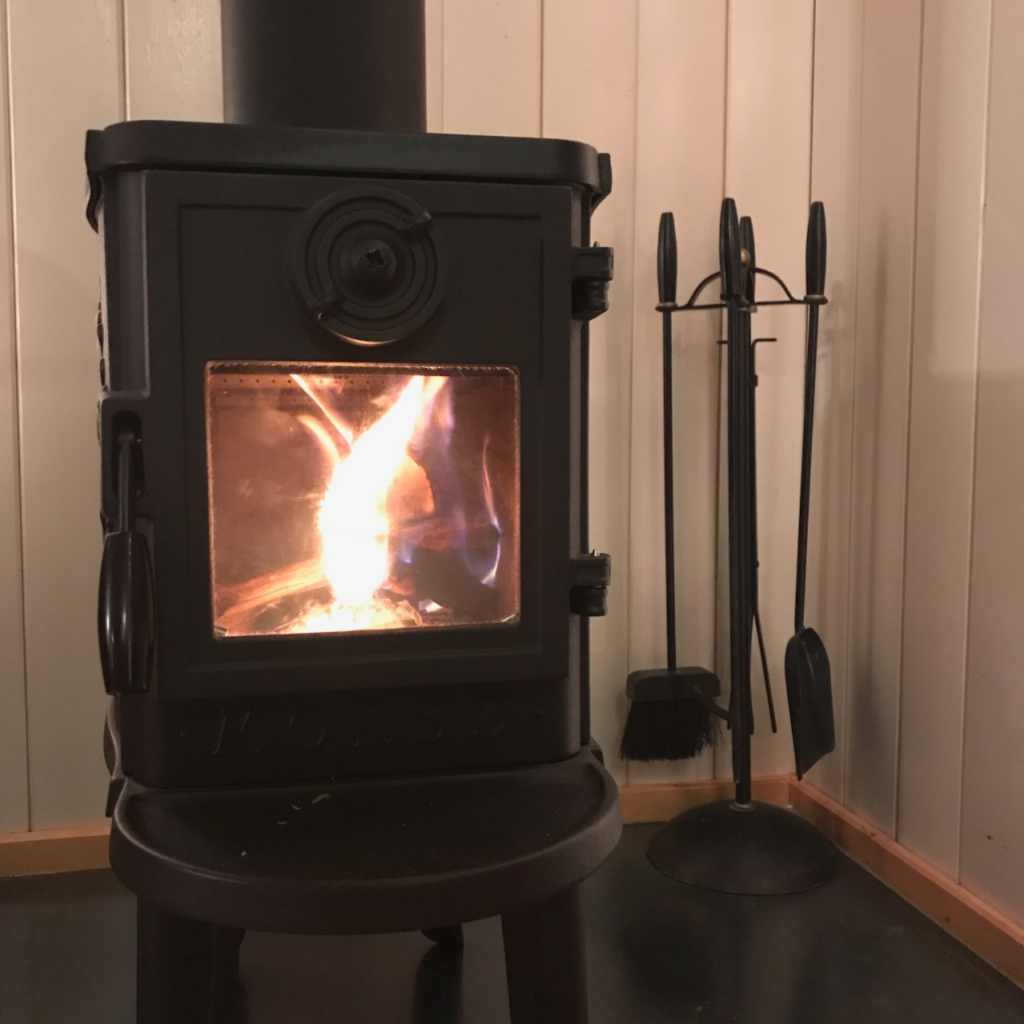
So there you go. We’re ready for a big power outage now; we rearranged our bookshelves and dedicated my favorite little corner to our new woodstove. But if you need more book recommendations, all of our books are here. :)
P.S. Want more books, for all ages? Here’s our list.


